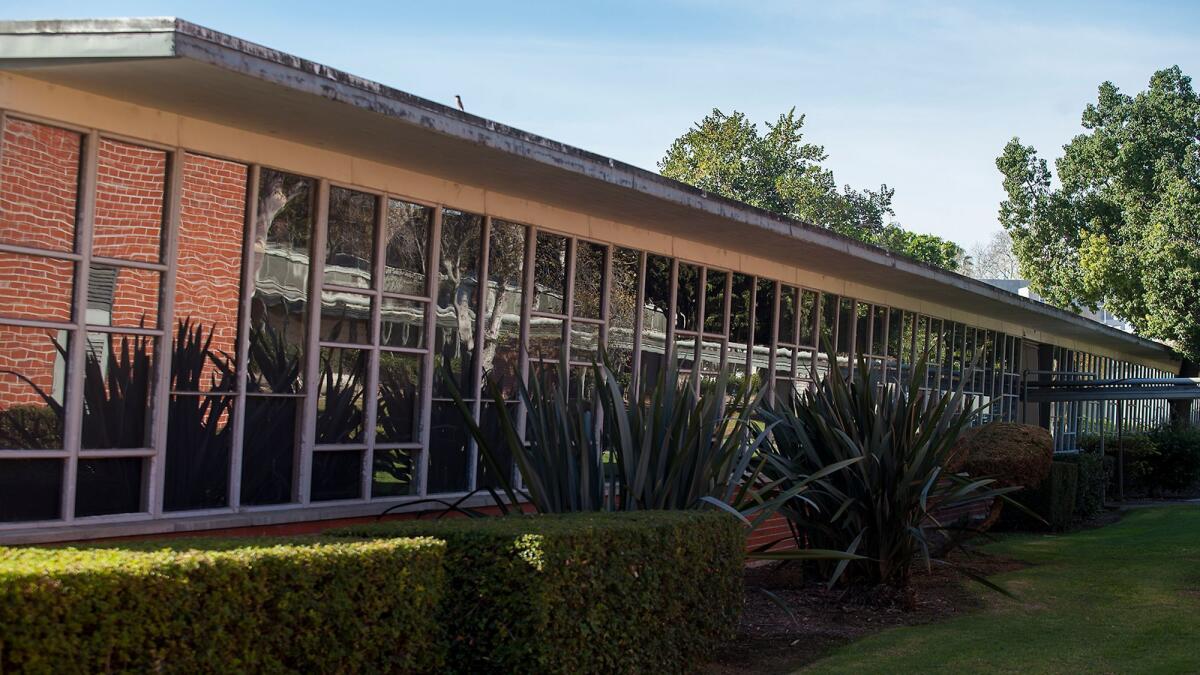Commentary: Career training is often a good alternative to the traditional four-year college degree

As the Great Recession showed, the traditional model of “go to a four-year school, get a great job with campus recruiting and contacts and move your way up from there” had drawbacks.
Budget cuts necessitated layoffs, new employee hiring was halted and free volunteer internships were not allowed in some cases due to labor laws necessitating that candidates receive training wages. “Just-in-time” hiring models prevailed, so mainly those with specifically demanded functional skills, often from prior work experience, were hired and well-paid.
Ambition, intellectual capabilities and enthusiasm were not enough to find gainful employment for many good people. Business and industry representatives from diverse fields and sectors have observed and highlighted the unfortunate paradox wherein many high-paying jobs in fields like manufacturing, nursing, media and broadcast technology, teaching, welding and business office administration went unfilled because of a lack of trained, skilled personnel. Conversely, other capable people with college degrees who needed work found that they did not have the necessary training or job skills to fill available jobs.
Career education programs at community colleges offer a direct, practical and proven way for an individual to get certifiable technical skills that are in high demand by employers and which pay high wages. Even though academic skills, such as reading diverse literary works, critical thinking, analytical writing and social communication, are important, vocational skills can be seen as a necessary supplement or a viable alternative.
They are for people who want to be prepared to enter a career in a short period of time by gaining tangible workplace skills rather than following a longer educational path to a bachelor’s degree. With California College Promise programs and scholarships for students in career technical education (CTE) programs, this practical career education may even become tuition-free for individuals who need financial aid most.
For anyone 16 or older with a high school diploma or equivalency certificate, career technical education can be a great alternative to the traditional four-year university path. Orange Coast College offers more than 50 career education programs, including arts, media, entertainment, health construction, architecture, aviation, culinary arts and restaurant management.
Many programs offer training leading to direct industry licensure and certification. Jobs are plentiful, and wages are high.
OCC career programs maintain strong, close ties with businesses and industries, leading to good employment prospects for graduates. OCC also offers a unique program of internship and other work-based learning experiences that allow students to get on-the-job training and networking with employers.
OCC’s Internship Academy allows students to get course credit for internship experience. Some internships are paid. One notable example of a business partnership that benefits OCC students is the Walt Disney Co. OCC students have the opportunity to participate in the Disney College Program, a for-credit internship where students get training and mentorship by Disney instructors.
Partnerships like this often lead to well-paying and rewarding jobs. With enough popular support and capable students opting for this pathway, more firms may make such well-reasoned investments in community projects with economic and social payoff.
JOE KLUNDER grew up in Newport Beach. He currently teaches in China.
All the latest on Orange County from Orange County.
Get our free TimesOC newsletter.
You may occasionally receive promotional content from the Daily Pilot.



